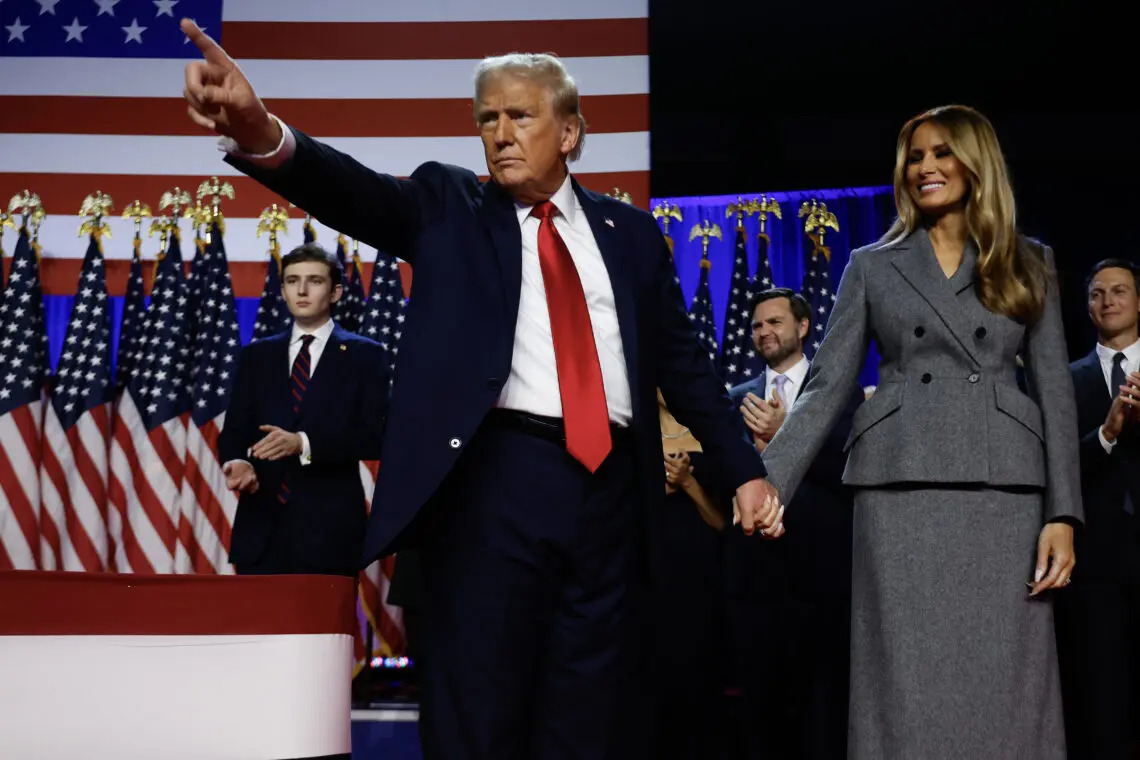Election night 2024: TV networks grapple with fast-developing results
Fresh strategies for coverage
Election Night 2024 was set to echo the high-stakes drama of 2020. TV networks meticulously planned 24-hour coverage, prepared for a prolonged battle between former President Donald Trump and Vice President Kamala Harris. Detailed analyses and political panels were on standby, ready to dissect each incoming vote, anticipating drawn-out counts in key swing states like Pennsylvania, Michigan, and Arizona.
By 11 p.m., however, a clearer picture began to form. On NBC, Lester Holt admonished his colleagues, noting that their tone implied the outcome was already sealed. “This is beginning to sound like a post-mortem,” he warned, encouraging a more measured approach as the night progressed.
Unexpected early verdict
As the night wore on, the anticipated suspense dwindled rapidly. At around 1 a.m., Fox News Channel’s Bret Baier informed viewers that Harris had a diminishing path to the crucial 270 electoral votes. An hour later, conservative outlet Newsmax declared the race in favor of Trump, a move soon echoed by NewsNation and ultimately solidified by Fox News Channel, who had already called Pennsylvania for Trump.
Persistent hope for viewers
Anchors, correspondents, and panelists across networks continuously attempted to maintain viewer interest, repeating phrases like “we’re not there yet” and “there’s more to come.” John King of CNN utilized the network’s Magic Wall extensively, explaining potential Democratic votes in battleground states like Georgia and Pennsylvania, but eventually had to illustrate the improbability of a Harris comeback.
In-depth analysis of the outcomes
Sitting in a cavernous soundstage in Culver City, California, near the East Coast’s 1 a.m., Brian Williams of Amazon Prime Video’s special coverage reached out to Erin McPike for updates on an interactive map. The scene underscored high hopes for prolonged viewer engagement, typically a boon for network ratings during presidential elections.
Historically, presidential elections draw expansive audiences, an appealing prospect for networks amid advertiser skepticism. Tough news like climate change or electoral polarization often impacts sponsorship, so an extended election cycle felt economically beneficial. However, the rapid unfolding of results led to a different story.
The reality check
Despite ongoing coverage plans extending into the next day for networks like NBC News and ABC News, many commentators were already clear about the likely outcome before midnight. On Fox News, Sean Hannity confidently predicted Trump victories in North Carolina and Georgia, while on CNN, Chris Wallace shared early exit-poll data revealing voter dissatisfaction with key issues like the economy. Wallace noted that Harris would need a “miracle” to win under such circumstances.
Sobering developments
By 11 p.m., as Harris struggled to secure leads in critical states, the atmosphere shifted. Chuck Todd of NBC News remarked, “This looks a lot more like 2016 to me than it does 2020,” reflecting on Trump’s unexpected comeback. Later, Jen Psaki, now a host on MSNBC, expressed a more somber view for Democrats, acknowledging the bleak campaign outturn.
Final takeaways
The brisk resolution of Election Night 2024 left little room for anticipated drama. Yet, the swift clarity provided a candid snapshot of electoral sentiment, underscoring the dynamic and often unpredictable nature of American politics. Whether this will catalyze shifts in network election strategies for future races remains to be seen.
Stay tuned for more insights and analyses as this historic event continues to reverberate across the political and media landscapes.

 Italian
Italian







